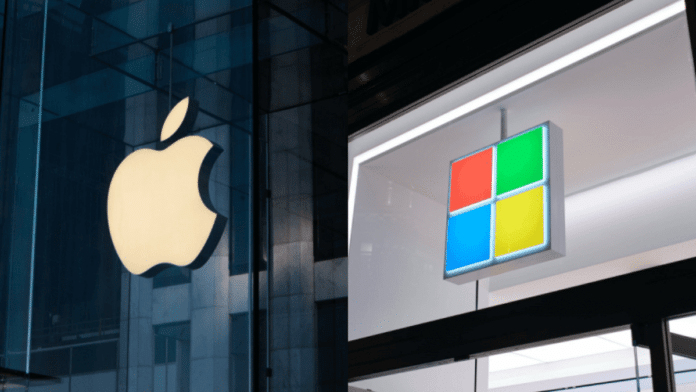Apple and Microsoft reportedly want their services, the iMessage chat app and Bing search engine, to be exempted from the designated “gatekeepers” list under the European Union’s forthcoming Digital Markets Act (DMA) on September 6.
Both the tech giants argue that their services aren’t large or powerful enough to justify earning the restrictions of the DMA (via The Financial Times).
For those unaware, the DMA is a European Union (EU) regulation that aims to make the digital economy fairer and more contestable by keeping the big internet companies in check. It will ensure that these platforms behave in a fair way online and promote more competition and choice, greater innovation, better quality, and lower prices.
The platforms that meet certain criteria, such as having an annual turnover of more than €7.5 billion, a market cap above €75 billion, and at least 45 million active monthly users or at least 10,000 active business users in the EU, will be subject to a slew of interoperability and competition rules of the DMA.
While the European Commission has not released the list of designated gatekeepers, Apple, Microsoft, Amazon, Alphabet, Meta, ByteDance, and Samsung are already on the said list. However, the EU has yet to determine which specific services offered by them should be covered.
Once the EU assigns its gatekeepers, they will have six months, or until March 2024, to abide by the DMA’s rules.
Microsoft and Apple are “privately (and separately) arguing that their services aren’t large or powerful enough to justify earning the restrictions of the Digital Markets Act”, states the FT report.
Apple is reportedly working actively on methods to open up its iOS platform to third-party app stores and sideloading to comply with new anticipated rules.
However, it argues that iMessage falls short of DMA’s user threshold of 45 million monthly users, exempting it from opening the service to facilitate rival apps such as Meta’s WhatsApp, the report noted, citing the sources.
Analysts have estimated that iMessage, which is built into every iPhone, iPad and Mac, has as many as 1bn users globally, but Apple has not disclosed any figures for several years. The decision is likely to hinge on how Apple and the EU define the market in which iMessage operates.
On the other hand, Microsoft is “unlikely” to dispute the designation of its Windows operating system, as it acknowledges that it qualifies as a gatekeeper. However, it argues that its Bing search engine only holds a market share of 3% (compared to its rival Google), and subjecting it to further legal scrutiny could put it at a greater disadvantage with the new rules.
It also argues that under the new rules, Bing would need to give users a choice of other search engines, including Google’s Search, which could end up boosting Google’s market share.
Microsoft further rejected the idea that Bing “should be subject to the same obligations placed on its much larger rival, Google Search,” the FT report added, citing two people with direct knowledge of the matter.
Neither the European Commission nor Apple or Microsoft have commented on the report.

